Injured Ben Parkinson kayaks 250 miles down Yukon River
- Published
Medical staff did not expect Ben Parkinson to survive after the explosion but he has continued to defy the odds by rebuilding his life
Nine years after being blown up in Afghanistan, one of the British Army's most wounded soldiers has kayaked 250 miles down Canada's mighty Yukon River.
Paratrooper Ben Parkinson, from Doncaster, had both legs amputated and was left brain damaged after the landmine blast in 2006.
Not expected to survive, he was flown to the UK to die close to his family.
But Ben defied the odds and his latest challenge is another astonishing achievement in his story of survival.
Rewind the clock nine years and Lance Bombardier Parkinson's life was in a desperate state.
He was just 22 and in a coma with almost 40 separate injuries. The future looked bleak.
But he began the long slow road to recovery that has seen him learn to talk again and take the first faltering steps on prosthetic legs. His long-term ambition is to walk unaided without the use of crutches.
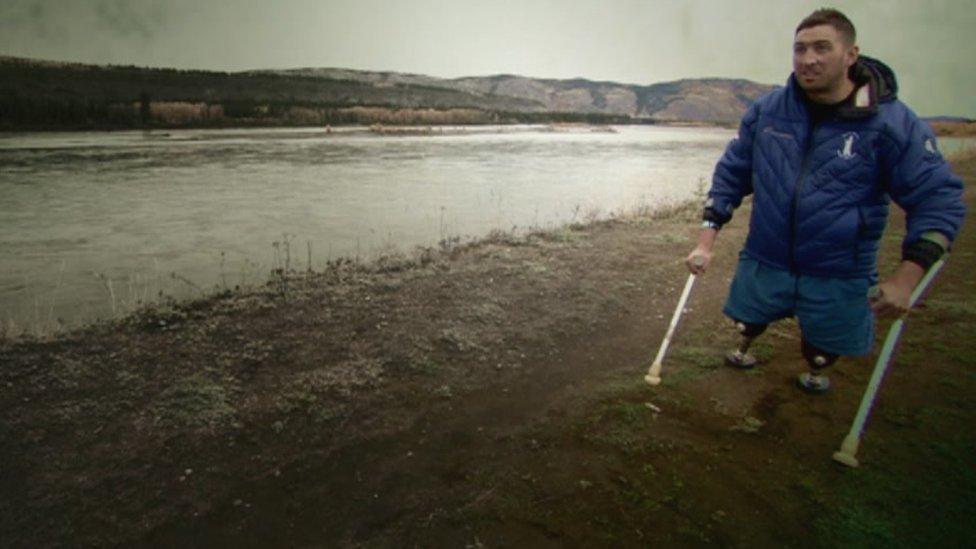
The most severely injured soldier to survive in Afghanistan, he lost both his legs and broke his back as well as suffering a brain injury
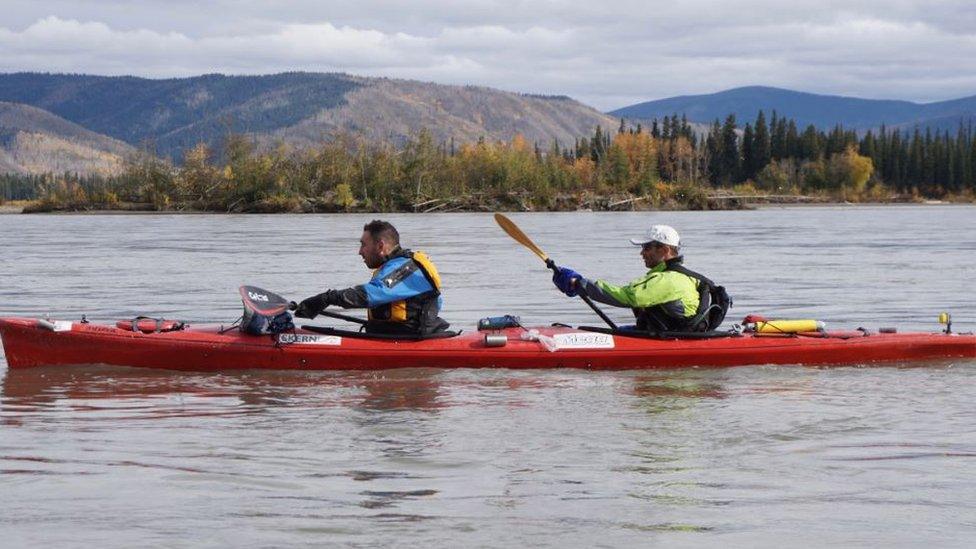
The eight-day expedition to the Yukon was organised by a charity for severely wounded soldiers
He is now one of Britain's best known wounded soldiers and an inspiration to many.
In 2012, thousands of people watched Ben carry the Olympic Torch through his hometown of Doncaster and a year later he was made an MBE.
I first met Ben a few months ago on an open water training weekend on the South Coast of England.
I was joining him on the trip to the Yukon and within minutes I was struck by his sheer determination and wicked sense of humour.
As someone who reports on wildlife for The One Show I was looking forward to an encounter with some bears or wolves. Pointing at my legs, Ben told me I was more of a target for grizzly bears because there was more "meat on me".
The expedition to the Yukon was organised by a charity for severely wounded soldiers known as the Pilgrim Bandits. They are a group of former servicemen who are using their skills to help people such as Ben rediscover the military lives they once enjoyed.
Mike Witt, from the charity, told me: "When we first met Ben he was in an electric wheelchair. He could hardly talk. He looked a real sad bloke.
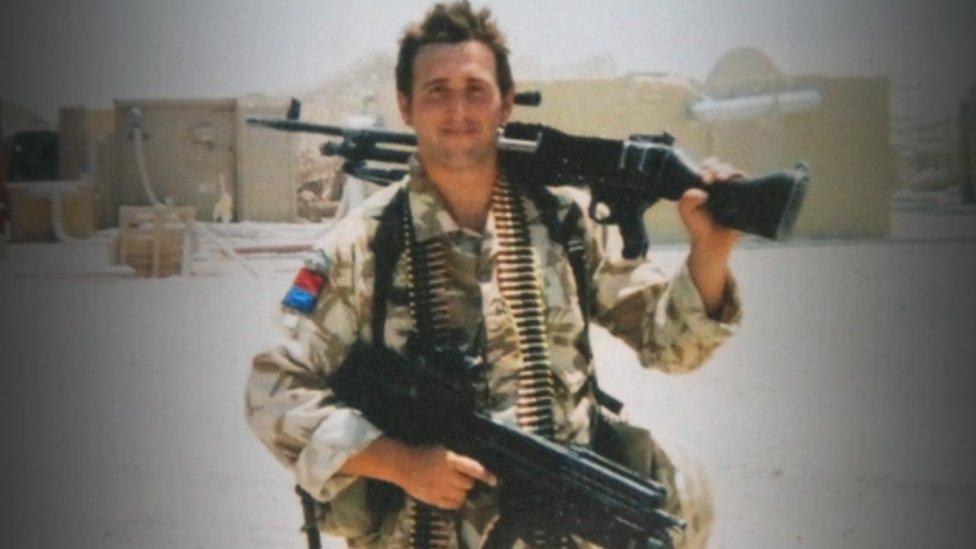
Ever since Ben Parkinson was a young boy he had wanted to be a paratrooper and he realised his dream when he joined the 7th Parachute Regiment Royal Horse Artillery
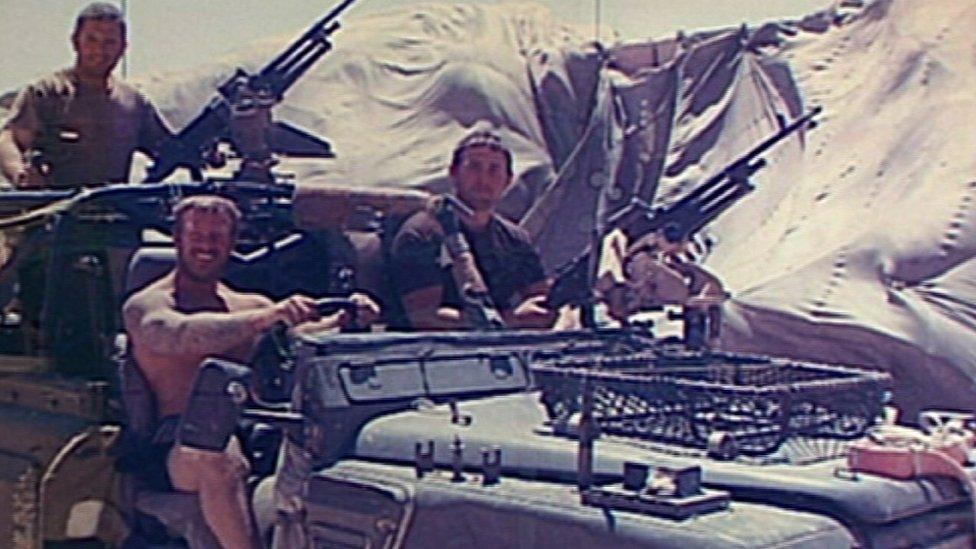
He was two weeks away from finishing his tour in Afghanistan when the his Land Rover hit a mine in September 2006
"But you could see Ben's a special guy. You could see somewhere there was still something wanting to get out and able to get out. And it just needed the nut cracking really, and that's all we've done."
On paper it was daunting trip for all of us but especially for Ben and a couple of other military amputees who were also there.
Not only was there the distance we were going to cover but also the sheer remoteness of the location. In essence, if anything went wrong, we were a long way from help.
Yukon territory is twice the size of Britain but with a population of just 35,000.
The Yukon River flows for more than 2,000 miles and is one of the biggest river systems in North America.
It is fast flowing and fed by glacial melt water and as a result the temperature is just above freezing. Falling into such cold swift moving water was not an enticing option.
Each night Ben, myself and the rest of the Pilgrim Bandits team were wild camping. For the amputees this was the toughest part. Just getting in and out of the boats and moving around camp required massive effort.
But Ben has spent years training for a moment like this and, being a gym fanatic, he has amazing upper body strength. We all thought the canoeing was going to be the least of his problems.
But three days into the expedition it became clear he was struggling with a long-term injury.
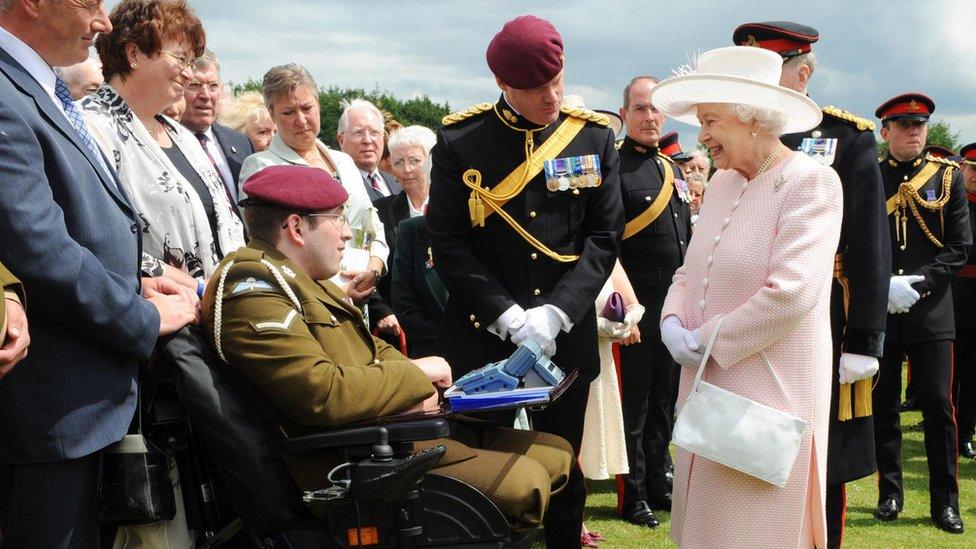
Ben is described as having an indomitable spirit and a wicked sense of humour
The explosion in Afghanistan had left him with a broken back and at one point he was forced to swap his canoe for my kayak so he could complete the expedition in less pain.
Ben was helped on the trip by his stepdad Andy Dernie who paddled the full 250 miles. Andy and Ben's mum Diane have sacrificed everything to get Ben to this point in his life. They are his full time carers and their home in South Yorkshire is Ben's rehabilitation centre.
Diane said: "There was always something special about what Ben did. We were incredibly proud of his achievements, but nothing even compares to how proud we are of the way he's coped with what's happened to him."
Ben Parkinson: Wilderness Warrior will be broadcast on BBC1 at 15:15 GMT on Sunday, 22 November.
- Published26 January 2015
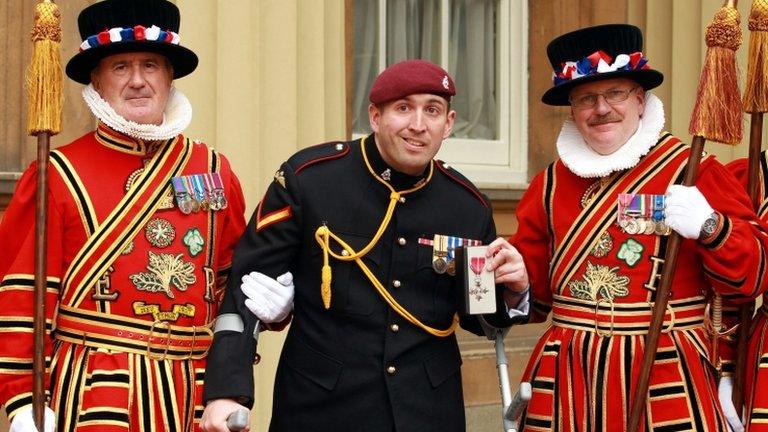
- Published17 May 2013
